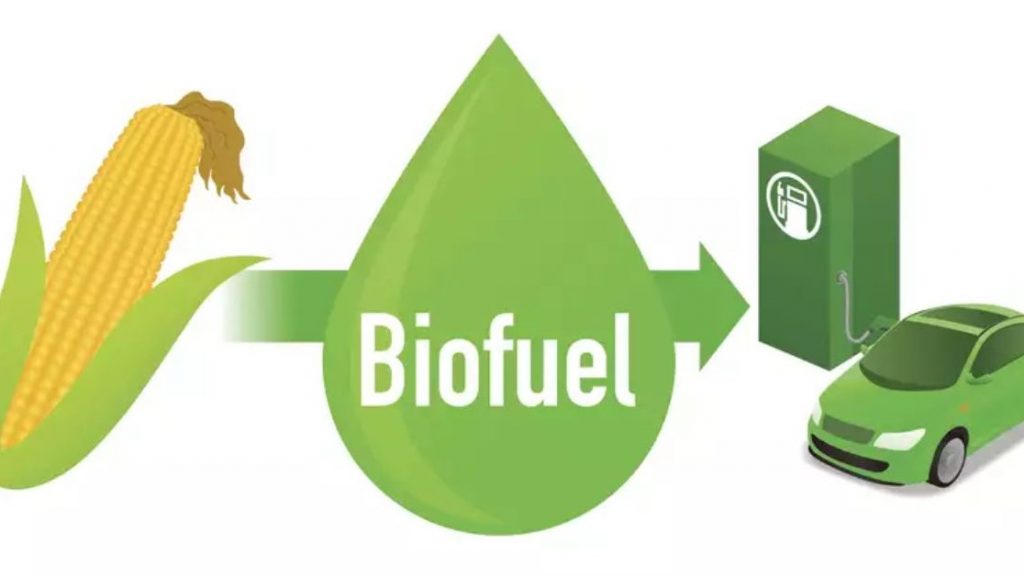On the sidelines of the G20 Summit, Prime Minister Narendra Modi announced the Global Biofuel Alliance (GBA), an initiative to bring together governments, international organizations such as the World Bank and industry to facilitate greater adoption of biofuels. These include the biggest consumers and producers of biofuels.
Biofuels have the potential to reduce greenhouse gas (GHG) emissions significantly by replacing conventional fuels such as coal, diesel and furnace oil that are responsible for environmental pollution and health hazards. It offers significant cost-saving potential though at present biofuels are more expensive compared to coal-based power. However, with innovation and further technological development, costs will fall as happened with solar power. Also, farmers and waste producers can earn extra income from biofuels. Burning of crop residue and other wastes may also fall as demand for biofuel feedstock rises. For cities like Delhi, it could mean lower air pollution, particularly in the autumn and early winter.
Many countries and international organizations have already shown their willingness to join the biofuel alliance. Notable is the interest shown by Bangladesh which has the world’s most extensive off-grid solar power programme. Member nations and organizations of the GBA will not only support the promotion of biofuels in their own countries but also provide valuable insight and guidance to others seeking to enhance the availability of economical and eco-friendly electricity. It is also expected that the United Nations will recognise the GBA just as it has recognised the International Solar Alliance (ISA).
The GBA aims to replicate the success of the ISA, which was also an India-led initiative. An alliance of more than 120 signatory countries and international organizations, the ISA is working towards efficient consumption of solar energy in order to reduce dependence on fossil fuels. It has led to the development of solar energy in sunshine countries that lie either completely or partly between the Tropics of Cancer and Capricorn. It has also led to the mobilisation of funds from multilateral and bilateral organizations, and investors and lenders globally. The World Bank, for instance, has committed to mobilising more than $1 trillion in investments to help the ISA achieve goals for the massive deployment of affordable solar energy by 2030.
The GBA will support the worldwide development and deployment of sustainable biofuels by offering capacity-building exercises across the value chain, technical support for national programmes and promoting policy lessons-sharing. It will facilitate mobilizing a virtual marketplace to assist industries, countries, ecosystem players and key stakeholders in mapping demand and supply as well as in connecting technology providers to end-users. It will also facilitate the development, adoption and implementation of internationally recognized standards, codes, sustainability principles and regulations to incentivize biofuels adoption.
Biofuels are derived from organic matter such as plants or animals. Organic materials that can be recycled such as wood, agricultural wastes and municipal wastes can be used to produce biofuels. India’s demand for biofuels was estimated to grow from 0.17 million tonnes in 2021 to 0.26 million tonnes by 2030, rising by 8.6 percent CAGR. Global biofuel demand is expected to grow by 35,000 million litres per year or 20 percent over the 2022-2027 period. The global biofuels market, valued at $116.46 billion in 2022, is expected to hit around $201.21 billion by 2030, registering a CAGR of 8.3 percent.
Unlike solar energy, biofuels have been subject to criticism for their socio-economic effects. Their effect on food production and prices, reduction in poverty level and in carbon emissions, deforestation, soil erosion and loss of biodiversity have remained in focus. Environmental NGOs have been campaigning against the production of biofuels as a large-scale alternative to fossil fuels.
The success of biofuels can cause landowners to change cropping patterns. For instance, rising soybean prices lead to increased soybean acreage that might cause diversion of land from other food crops or forest land. Similarly, in the past many biomass plants were forced to shut operations due to the diversion of rice bran or other biomass-producing land by farmers towards more remunerative crops. Producing more crops for biofuel can affect the quality of water and cause runoff of excess nitrogen and phosphorous into groundwater.
Clearly, there have been challenges in the sustainable production of biofuels as well as in supply chain management and commercialization and development of cost-effective new technologies. Seen from this perspective, the role of the GBA becomes very important. Biofuels have the potential to become a viable alternative provided implications of their use for economic, environmental and public health are adequately recognized and addressed. The GBA is a much-desired and path-breaking initiative for providing alternative sources of energy. However, its tasks are far more challenging than those before ISA. Foremost among the tasks before GBA is to develop acceptability and consensus around the viability of biofuels.
Tags: Biofuels, G20 summit, Global Biofuel Alliance, ISA

Recent Posts
Govt to introduce hydrogen-based process for steel production
LR to support Shandong Marine Group’s green energy transition
Bureau Veritas assesses technical viability of carbon capture tech
Ricardo gets AiP for marine hydrogen fuel-cell system
K Line successfully conducts B100 trial
Centre extends bid deadline for oil, gas blocks
CoolCo inks long-term charter deal with GAIL
Airbus launches aviation liquid hydrogen project